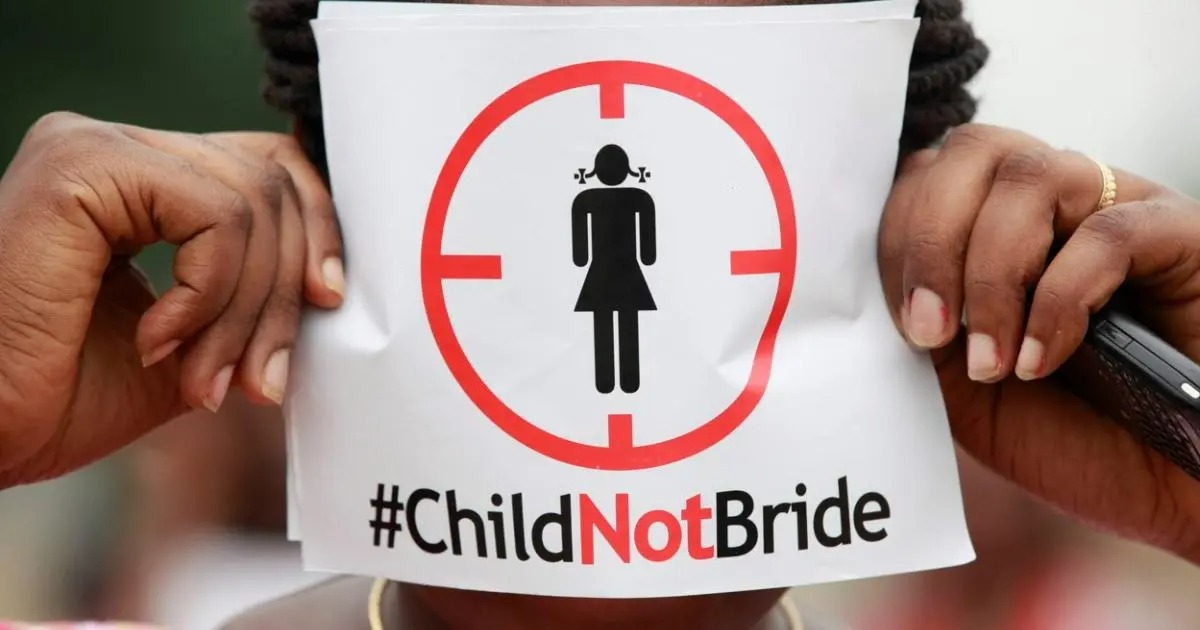Child Marriage in Nigeria: Violation, Legal Issues, and Complications
14 years old married to a 69 years old man in Northern Nigeria
By: Sarah John
Child marriage continues to remain one of the most prevalent issues in Nigeria. Although prohibited by the Federal Child Rights Acts (2003), the law that guarantees the rights of all children in Nigeria, 58.2 percent of Nigerian girls still get married before 18.
The Child’s Right Act (2003) which covers the right of all persons below 18 in Nigeria was passed into law in 2013 by former President Chief Olusegun Obasanjo. The act covers the rights of children in Nigeria and the various ways that they should be protected, including protection from child marriage (section 21), protection from harm or marks, protection from sexual violence and exploitative labor among other things.
Since its passage in 2003, domestication in the 36 states across Nigeria has been slow. However, as at May 14, 2022, The Minister of Women’s Affairs and Social Development, Mrs. Pauline Tallen, stated that 31 states had domesticated the Act. This leaves Adamawa, Bauchi, Gombe, Kano, and Zamfara States.
While Part III, Section 21 of The Child Rights Act (2003) states that “no person under the age of 18 years is capable of contracting a valid marriage, and accordingly, a marriage so contracted is null and void and of no effect whatsoever”, Section 22 of the same part went on to state that no parent, guardian, or any other person shall betroth a child to any persons. A betrothal in contravention of the former is null and void.
Finally, Section 23 spelled out a conviction fine of N500,000; or imprisonment for a term of five years or both for any person who marries a child, to whom a child is betrothed, promotes the marriage of a child and betroths a child.
Despite all of these, Data from Statistica revealed that between 2012 and 2018, 18 percent of females in Nigeria were married before 15, while 44 percent of girls were married before the age of 18. For males, 3 percent of them were married before 18. Although these data were from about 4 years ago, the situation is not very different from today; a report by the United Nations Children’s Fund (UNICEF) predicted that Nigeria will have 29 million child brides by 2050.
Why is Underage Marriage Rampant?
According to a report by Human Rights Watch, one of the leading causes of child marriage is fear of social stigma. When teenage girls get pregnant, their parents force them to marry at a very young age, to save face. In one of the stories from the report, Rachel K, a young girl of 18 from Imo state, was thrown out of the house by her parents when she got pregnant at the age of 15. After her boyfriend denied responsibility for the pregnancy, her parents found a man 30 years older than she was, to marry her.
“So, this man came to my house, and he was [introduced] to me in my father’s house. After he left, I [asked] my mum ‘Who is this man?’ She said he is my husband. And I said, ‘My husband?’ My mother replied saying ‘Don’t you want to marry? Do you think you can stay in my house [with children]? I will not accommodate you! It’s better that you go and get married.’ I was only 15 years old. I didn’t have any other option.”
Over the years, religion has also often been blamed for child marriage. This is like in the case of Kano State, a predominantly Muslim state which has the highest rate of underage marriage in Nigeria. Some Muslims believe that Islam supports the betrothal of girls at puberty, which occurs between the age of 8 and 13, therefore forcing their children into marriage at a tender age. Child marriage is further made possible in some states by the Shariah law, a set of Islamic laws, which does not specify the age for marriage, but rather, puberty.
Like religion, cultural beliefs also fuel child marriage. Many believe that once a daughter attains a certain age, she can be betrothed, irrespective of her level of psychological development or age. They, therefore, follow through with this and contract their child out for marriage, especially young girls. Tribes like the Hausa and Fulani in Nigeria believe in and practice this.
Poverty is also one of the driving forces of child marriage in Nigeria. Child marriages help poor families to reduce responsibilities and expenses as they have one less mouth to cater for. According to a human rights advocate, Tim. S. Braimah, 80 percent of young women from the poorest families marry in childhood as compared to 10 percent from the richest.
Additionally, child marriage is more prevalent in Northern Nigeria, where the poverty rate is quite high. Child marriage encouraged by poverty is often because the boys are expected to work outside the home to sustain the family and contribute income, while the girl cannot. Therefore, they often contract the girls out to the “highest bidder” who is ready to pay a handsome price for her hand in marriage.

Factors like teenage pregnancy, lack of education on the part of the child and their parent, insecurity, unequal law, lack of awareness on the part of the parent, and much more continue to contribute to child marriage.
Impact and Solution
While the parents are often able to move on after giving their child away for marriage, the child cannot, especially girls. For many of them, marriage often signifies the beginning of maltreatment and exposure to violence of various kinds. These young girls are unable to leave as they are returned to their husband’s houses if they do. Hence, left with no choice but to endure the marriage for a long period.
Health compromise is another impact of child marriage. Young girls with undeveloped bodies are forced into sexual activities against their will which heightens the chances of early pregnancy. For these girls whose birth canals are not fully developed to have children, they suffer stillbirth and miscarriages. In others who manage to bear the child against all odds, they suffer Vesicovaginal fistula (VVF), an abnormal opening between the bladder and the vagina that results in continuous and unremitting urinary incontinence.
Girls of school age who get married at a tender age often also have to stop their education, therefore denying them the right to basic education. For them to focus on taking care of the home and bearing children, they are pulled out of school prematurely.
To combat all of these, there is a need for advocacy efforts to be increased against child marriage. More awareness has to be created with parents at the center to educate them. Also, the existence and adoption of the Child Right Acts is not enough to curb the issue, rather there is a need to see that it is enacted and offenders are punished severely. Finally, prioritizing the education of children, especially girls, helps to prevent child marriage as they are kept in school.



